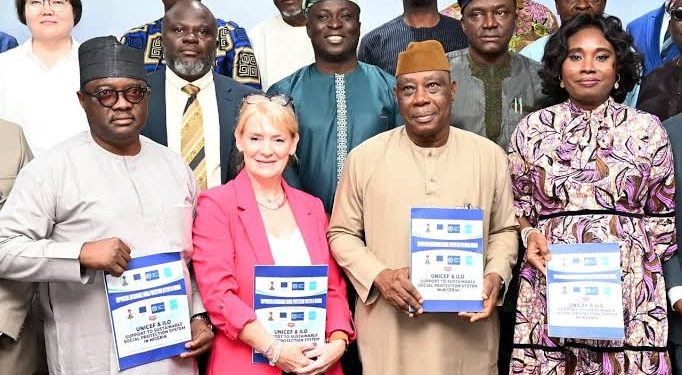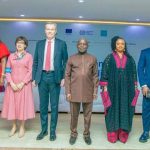The Oyo State Government, in partnership with the United Nations Children’s Fund (UNICEF), has launched the Supporting Sustainable Social Protection Systems in Nigeria (SUSI) programme, a landmark initiative aimed at tackling poverty and improving social inclusion across the state.
The launch, held at the Executive Council Chambers of the Governor’s Office in Ibadan on Monday, brought together top government officials, development partners, civil society actors, and international organisations.
The SUSI programme, funded by the European Union (EU) and jointly implemented by UNICEF and the International Labour Organisation (ILO), is designed to strengthen Oyo State’s institutional capacity to deliver inclusive, shock-responsive, and sustainable social protection.
Acting Governor Barrister Adebayo Lawal reaffirmed the state government’s full commitment to the programme, stressing that the intervention would provide the needed push to address poverty. He explained that a robust legal framework was already being prepared to ensure smooth implementation.
“We must give this initiative legal backing so that when it begins to operate, it will do so within the ambit of the law. As soon as possible, we would like the framework to be drawn up, vetted by the Attorney-General, and submitted to the House of Assembly,” Lawal said.
He also stressed the need for a modernised Social Protection Management Information System that would connect all relevant Ministries, Departments, and Agencies (MDAs) for better coordination. He urged development partners, civil society, and residents of the state to unite with the government in driving inclusive growth.
Speaking at the event, Chief of UNICEF Lagos Field Office, Celine Lafoucriere, underscored the urgency of expanding social protection coverage. She revealed that nearly half of Oyo State’s population and over 72 percent of children are multidimensionally poor, yet only 11 percent are currently captured in the state’s social registry.
“With just 2 percent of the population receiving any form of social assistance, the urgency for improved investment in social protection is now,” she said.
Lafoucriere acknowledged the state’s ongoing programmes, including free basic education, school feeding, and the Oyo State Health Insurance Scheme, but urged further improvements to achieve broader impact. She described social protection as a lifeline, not a luxury, and assured that UNICEF’s support to Oyo State would remain long-term and consistent.
“Every child in Oyo State deserves to grow up safe and protected. Every family deserves access to the services they need to live with dignity. UNICEF will continue to support Oyo State in building a social protection system that works for everyone,” she added.
The Commissioner for Health, Dr. Oluwaserimi Ajetumobi, and the Commissioner for Women Affairs, Mrs. Toyin Balogun, also pledged support for the SUSI programme. They highlighted the state’s investments in conditional cash transfers to vulnerable groups, expansion of the health insurance scheme, and revitalisation of primary health centres as part of efforts to strengthen resilience.
Commissioner for Budget and Economic Planning, Prof. Musibau Babatunde, noted that social protection had been central to Oyo State’s development agenda since 2019. He explained that the roadmap for accelerated development (2019–2023) and sustainable development (2023–2027) reflect the government’s commitment to inclusiveness and poverty reduction.
With the launch of SUSI, Oyo State is positioning itself as a model for social protection in Nigeria, building systems that not only respond to immediate needs but also secure a long-term foundation for inclusive and sustainable growth.










